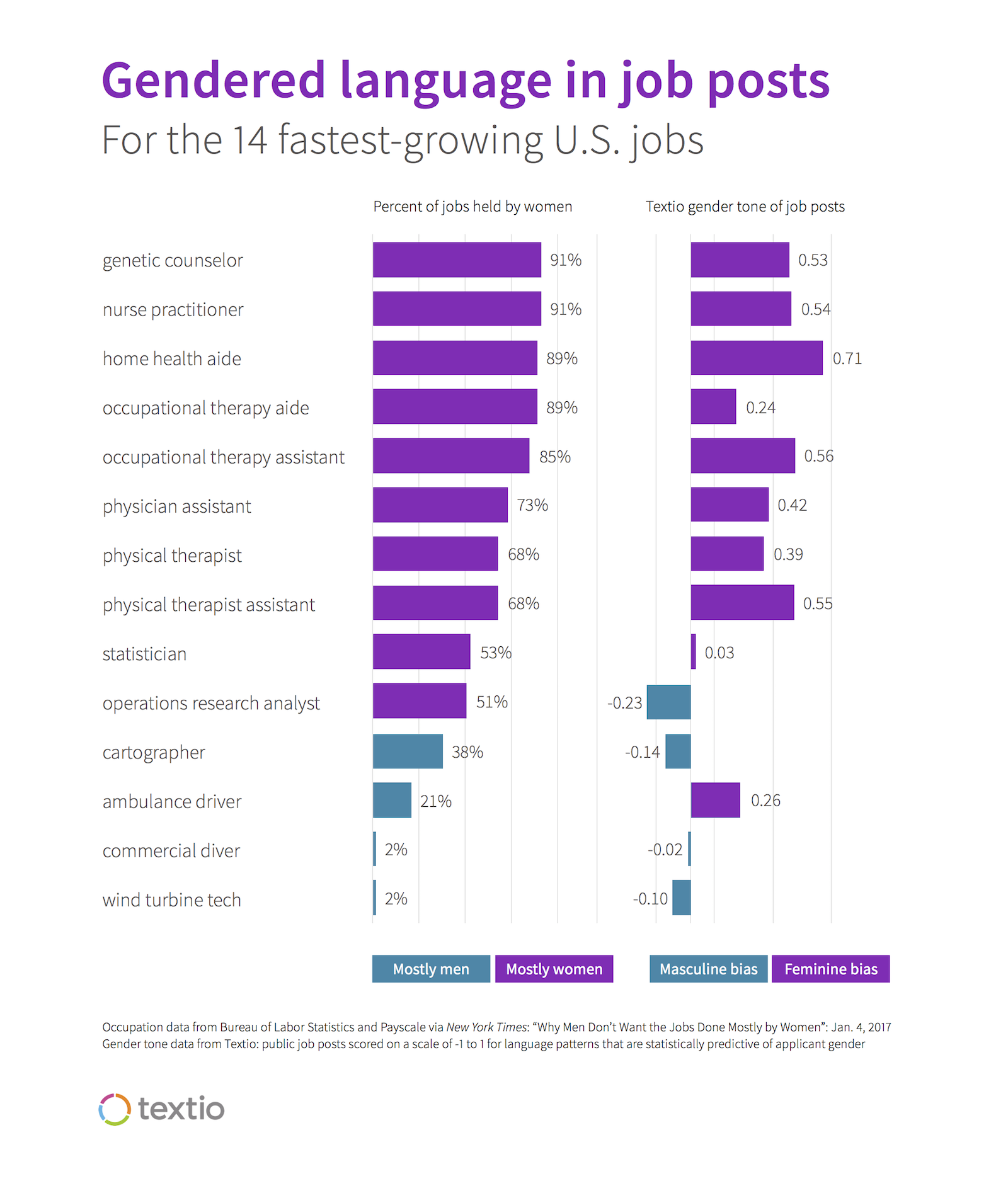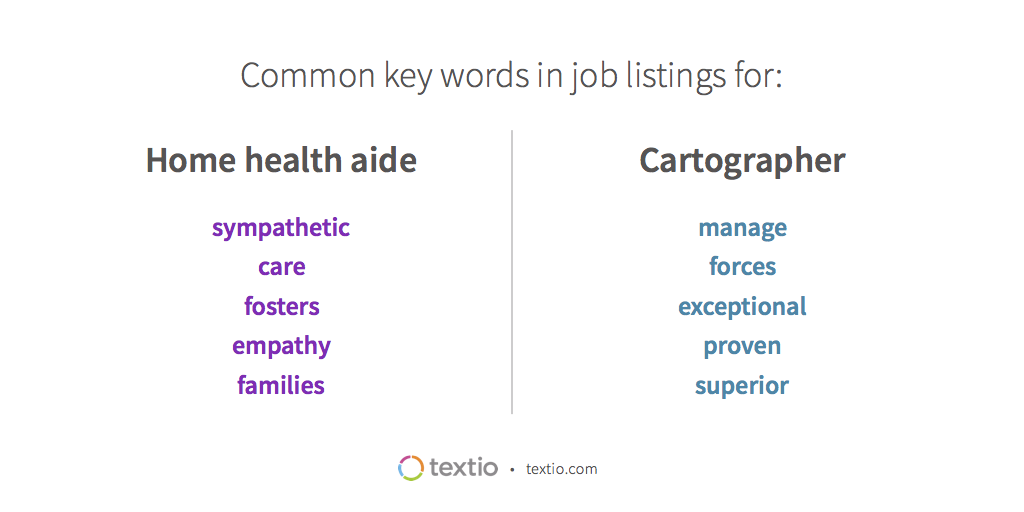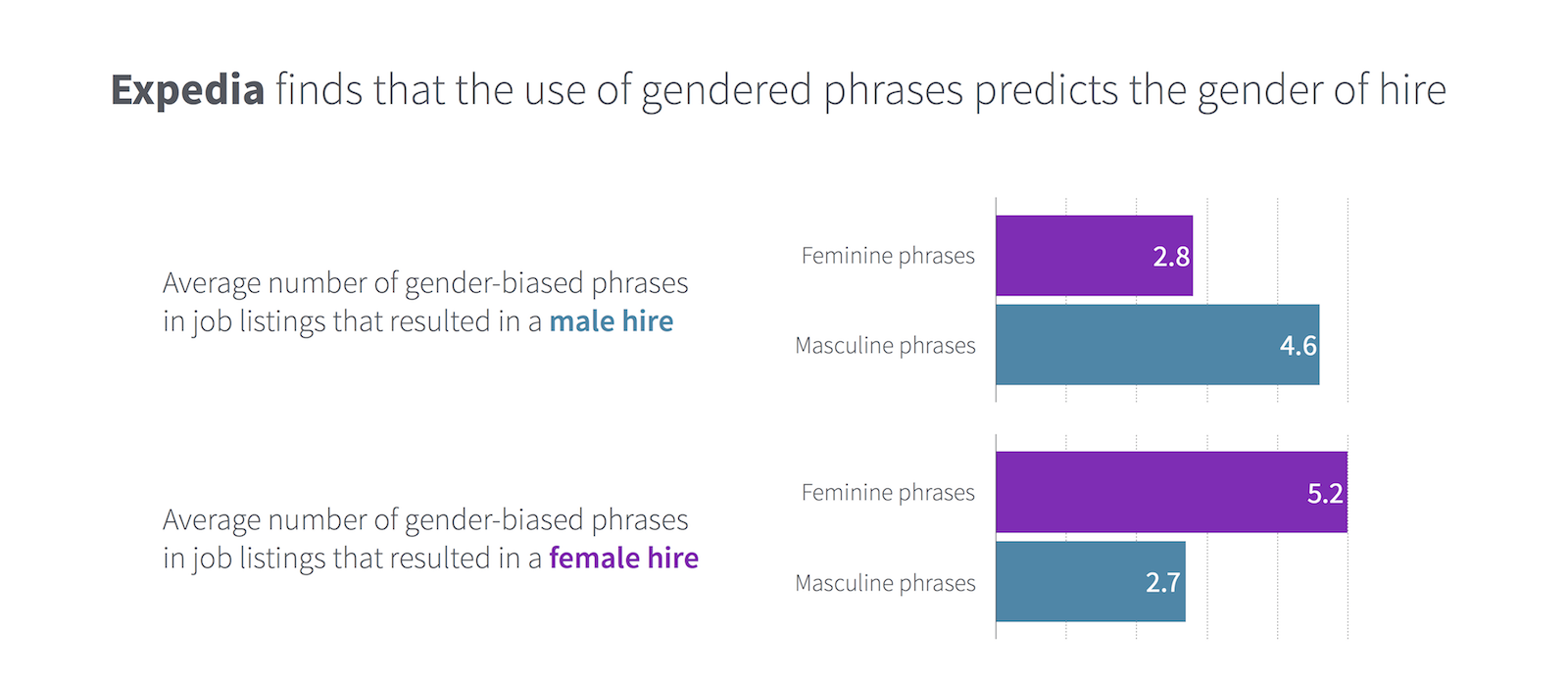How hiring language reinforces “pink collar” jobs

An article in the New York Times by Claire Cain Miller caught my eye last week. The message (and title) of the article is that “men don’t want the jobs done mostly by women.” This leads to a surplus of two things: unemployed men, and unfilled jobs that are traditionally perceived as feminine, mostly in the healthcare industry.
I wanted to know: is the perception of pink-collar jobs as “women’s work” outlined in Miller’s article linked to the way we talk about these jobs? We investigated the roles covered in the NYT article to see if the language used for pink-collar jobs is perpetuating their feminine stereotypes.

Textio’s software optimizes job listings for more qualified and diverse applicants. Our database of 50 million job listings with their outcomes data includes the gender tone of language used by employers, or the likelihood that it will attract male or female candidates. The most feminine job posts statistically attract more female candidates while the most masculine job posts statistically attract more male candidates.
In general, listings for pink-collar jobs are more feminine in tone. The roles seen as most suited to women and their characteristics are full of words and phrases that statistically attract more women. This reveals an opportunity for employers to shift the language used to talk about pink-collar jobs.
For example, job listings for home health aides (the pink-collar job that has the most feminine language on average and is 89% female, the third highest according to the NYT data) turn up the words sympathetic, care, fosters, empathy, and families.
On the other hand, job listings for cartographers (which averages the most masculine language and is 70% male) show words like manage, forces, exceptional, proven, and superior.

Except for “forces,” which was used in the context of special forces and the defense industry, the masculine words used in male-dominated positions could be applied to pink-collar jobs as well. There are many reasons why healthcare workers should have exceptional, proven and even superior management skills.
The same isn’t necessarily true for the pink-collar language, where employees care for patients and their families. This language is not as easily applied to wind turbine techs or cartographers.
Employees gravitate towards positions in the workforce that complement their strengths, and the same is true for job-seekers. For example, when Textio customer Expedia used more masculine phrases in their job listings, they could expect a male hire. The same applied for feminine phrases. We can get more men applying to pink-collar jobs by shifting the language so that more candidates can picture themselves in the role.

There are skills and qualities that employees in blue-collar jobs have that can benefit the healthcare industry. By targeting these attributes, employers can not only attract more underutilized segments of the population, but also bring new skills into the industry that healthcare may be currently lacking.